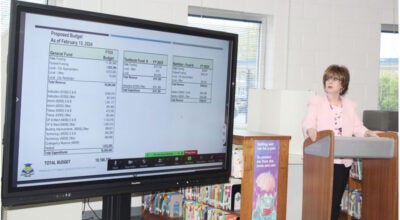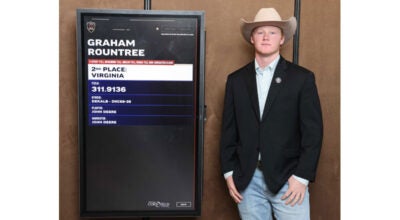Virginia schools earn high marks in national studies
Published 5:30 am Wednesday, February 6, 2019
Charles Pyle
RICHMOND
Two recent national studies rank Virginia’s public schools as among the highest performing in the nation.
The Cato Institute — a Washington-based think tank — compared the performance of students on the battery of tests in reading, mathematics and science that make up the National Assessment of Education Progress (NAEP). The analysis included state-to-state comparisons of overall student achievement and state-to-state comparisons of the achievement of white, black, Asian and Hispanic students.
Cato — in its November 2018 Fixing the Bias in Current State K-12 Education Rankings report — rated Virginia as number one in the nation in student achievement, followed by Massachusetts, Florida and New Jersey. Cato also ranked Virginia’s public education system as the third-most efficient in the nation when comparing achievement with statewide per-pupil spending.
In addition, Education Week today ranked the commonwealth sixth in the nation on its annual Chance-for-Success Index. Massachusetts was first, followed by New Jersey, New Hampshire, Connecticut, Minnesota and Virginia.
“The quality of our education system — from early childhood to postsecondary and adult education — is a key to Virginia’s ability to compete in the 21st-century economy,” Governor Ralph Northam said. “It’s critical we continue our progress to ensure that every child and young adult in the commonwealth is on a pathway to success.”
The Chance-for-Success Index evaluates state performance and data on indicators related to early childhood education, achievement in reading and mathematics, high school graduation and adult outcomes. Last year, Virginia ranked seventh on the index.
“The Education Week and Cato rankings reflect the efforts of thousands of Virginia teachers, principals and other educators who are dedicated to uplifting every child, every day,” Superintendent of Public Instruction James Lane said. “While positive national reports are worth celebrating, much work remains to be done to address persistent achievement gaps between student groups in the commonwealth and to ensure that all students who need additional support receive the resources and interventions they need to succeed.”
Virginia’s new school accreditation system — adopted by the state Board of Education in 2017 and implemented with accreditation ratings announced last September — includes progress toward closing achievement gaps as a factor in evaluating schools. In addition, all schools — including those meeting and exceeding the board’s accreditation standards — must implement plans for continuous improvement.
“Continued progress will depend on the commonwealth’s ability to attract and retain qualified teachers and other professionals,” Secretary of Education Atif Qarni said. “We need to find ways to keep teachers in the classroom and ensure that all schools have the support staff needed to meet students’ social and emotional needs.”
CHARLES PYLE is the director of media relations for the Virginia Department of Education. He can be reached at 804-371-2420.





